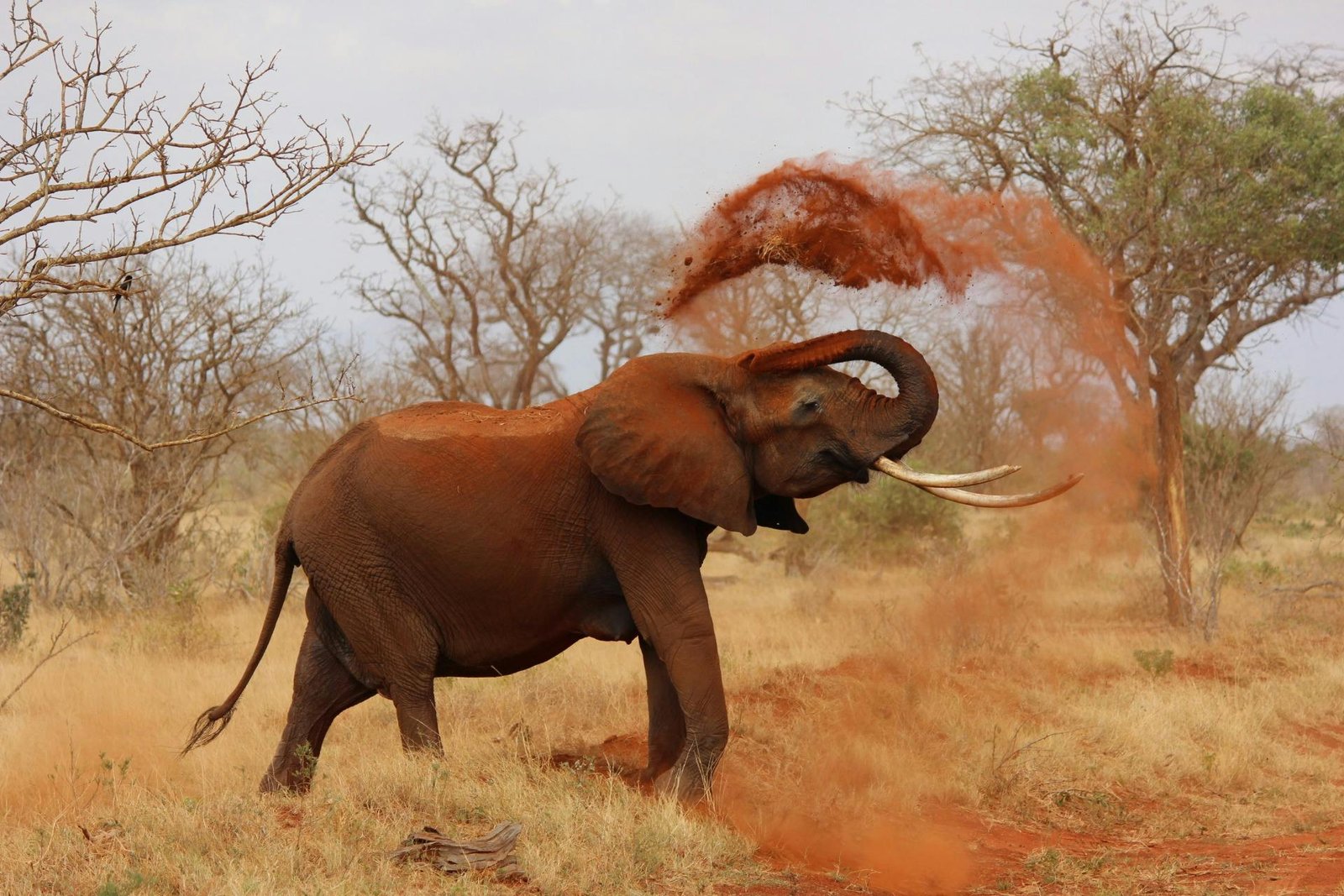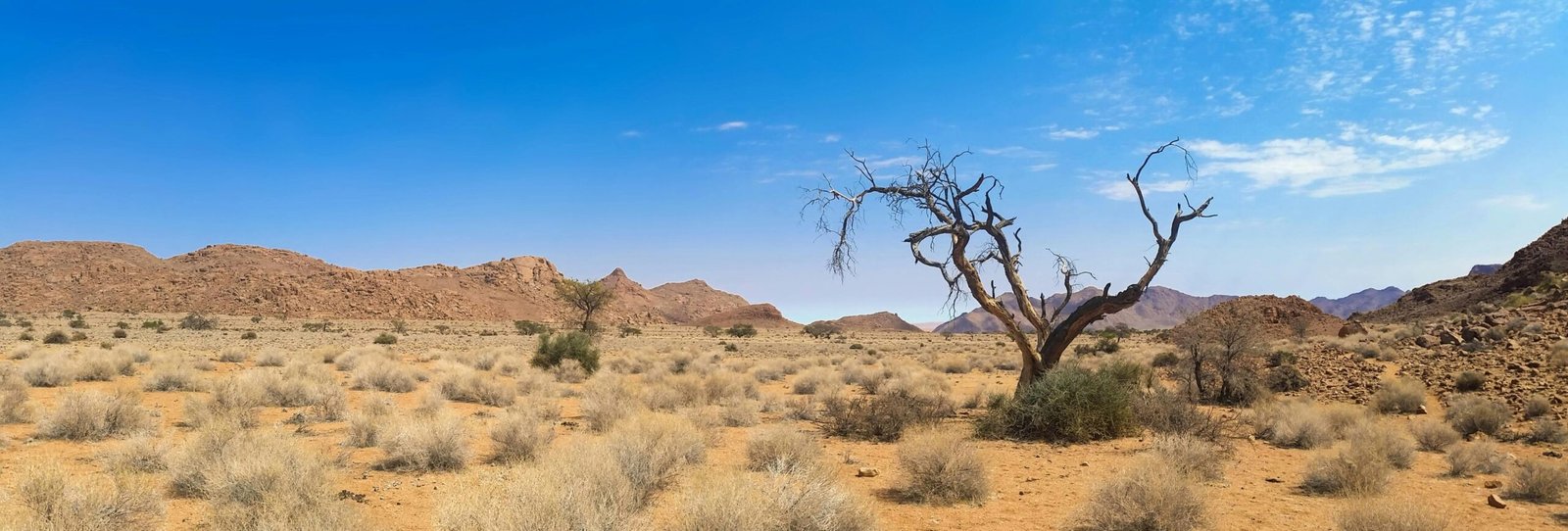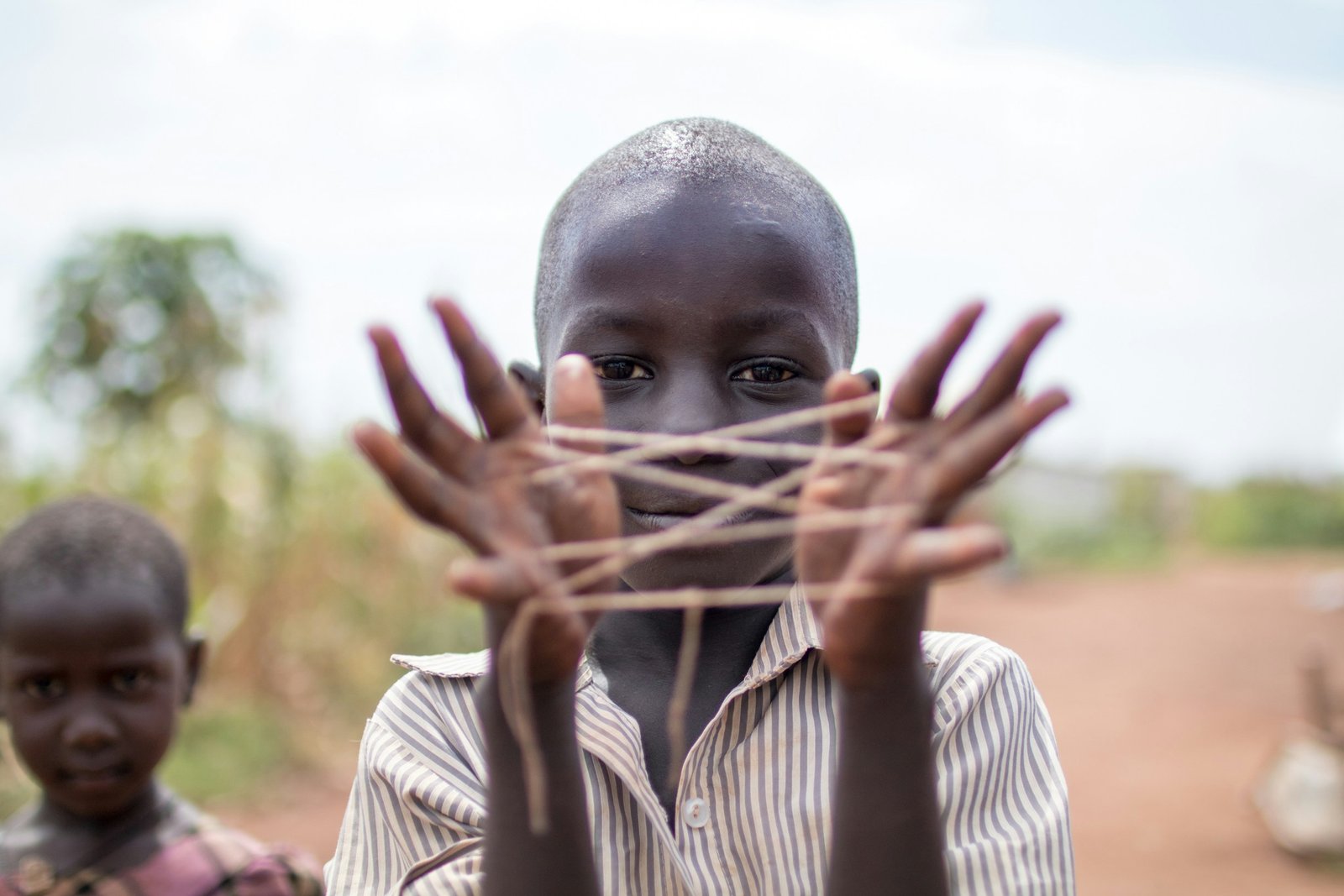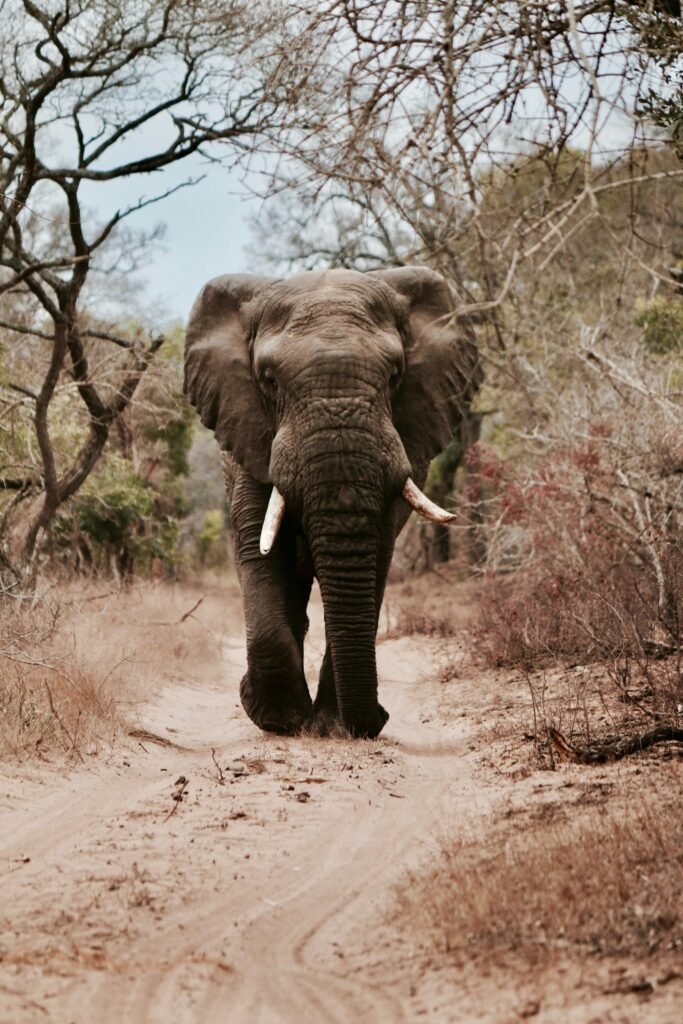Discover Amazing Facts About Africa That Will Blow Your Mind
Have you ever wondered about the vast and diverse continent of Africa?
“Africa is a truly unique continent, renowned for its rich history, diverse cultures, and breathtaking landscapes. In this article, you will uncover fascinating facts about Africa that highlight its exceptional and remarkable qualities as a destination. Prepare to embark on a journey to discover the wonders of Africa!”
History of Africa
Africa has a long and interesting history. Many civilizations, kingdoms, and empires have lived there for thousands of years. Some of the ancient groups include the Egyptians and Nubians. There were also strong empires like Ghana, Mali, and Songhai. Africa’s history is really fascinating and is important to learn about.
Geography of Africa
Africa is the second-largest continent in the world, spanning over 30 million square kilometers. It features a remarkable variety of landscapes, ranging from the vast Sahara Desert in the north to the verdant rainforests of Central Africa and the expansive savannas of East Africa. The continent is also home to some of the world’s most iconic natural landmarks, such as the Nile River, Mount Kilimanjaro, and Victoria Falls. Furthermore, Africa is rich in cultural diversity, with a multitude of traditions, languages, and artistic expressions that reflect its vibrant heritage.
Culture of Africa
The cultures of Africa are as diverse as the continent itself, with over 3,000 distinct ethnic groups speaking more than 2,000 different languages. From the Maasai of East Africa to the Zulu of Southern Africa, each culture has its own unique traditions, beliefs, and customs that have been passed down through generations. Music, dance, art, and storytelling are all important aspects of African culture, reflecting the creativity and resilience of its people.
Languages of Africa
Africa is home to an astonishing diversity of languages, with estimates indicating that over 2,000 distinct languages are spoken across the continent. These languages belong to several major language families, including Afro-Asiatic, Nilo-Saharan, Niger-Congo, and Khoisan. While many Africans communicate in their local languages, several widely spoken lingua francas, such as Swahili, Arabic, and French, facilitate cross-border communication.
African Economy
The economy of Africa is diverse and rapidly evolving, with agriculture, mining, manufacturing, and services each playing crucial roles in the continent’s development. Abundant in natural resources such as oil, gas, minerals, and agricultural products, Africa nonetheless confronts significant challenges, including poverty, inequality, and uneven economic progress. As the continent continues to grow and modernize, it offers promising opportunities for investment, innovation, and collaboration, which could foster sustainable development and improve the lives of millions.
Did you know that Africa is home to some of the oldest civilizations in the world?
The history of Africa spans thousands of years, with evidence of early human ancestors uncovered in regions such as Ethiopia, Kenya, and South Africa. The continent has nurtured some of the world’s most advanced and influential civilizations, including ancient Egypt, Nubia, Carthage, and Great Zimbabwe. These civilizations made remarkable contributions to various fields, including architecture, engineering, mathematics, astronomy, and medicine, leaving a lasting legacy that continues to be explored and revered by scholars globally.
Ancient Egypt
Ancient Egypt is one of the most renowned and extensively studied civilizations in Africa, with a history spanning over 5,000 years. The ancient Egyptians were celebrated for their remarkable architectural achievements, including the construction of monumental pyramids, grand temples, and elaborate tombs. They also made significant advancements in various fields such as mathematics, astronomy, and medicine, and developed a sophisticated writing system known as hieroglyphics. The legacy of ancient Egypt continues to be evident today through iconic landmarks like the Great Sphinx, the Pyramids of Giza, and the temples of Luxor.
Kingdom of Kush
The Kingdom of Kush was a formidable ancient civilization that thrived in Nubia, in present-day Sudan, from approximately 1070 BCE to 350 CE. The Kushites were renowned for their exceptional archers, military strength, and vibrant cultural legacy, which encompassed remarkable architectural achievements, including the pyramids at Meroe. The kingdom served as a significant hub of trade and industry, linking the Mediterranean world with sub-Saharan Africa and playing a pivotal role in the trans-Saharan trade routes.
Great Zimbabwe
Great Zimbabwe was an ancient city and trading hub located in present-day Zimbabwe, flourishing between the 11th and 15th centuries. The city is renowned for its remarkable stone architecture, featuring massive walls, towers, and enclosures constructed entirely without mortar. Great Zimbabwe served as a significant center of trade, establishing connections with the Indian Ocean coast, Arabia, and China. It is regarded as one of the most important archaeological sites in southern Africa. The ruins of Great Zimbabwe are designated as a UNESCO World Heritage Site, showcasing the ingenuity and craftsmanship of its builders.

This image is property of images.pexels.com.
Are you ready to explore the diverse landscapes of Africa?
Africa is a continent of extraordinary natural beauty, boasting a diverse array of landscapes that span from arid deserts to lush rainforests, majestic mountains to vast savannas. Whether you’re drawn to wildlife, seeking adventure, or simply wishing to unwind on a pristine beach, Africa offers something for everyone. Let’s explore some of the most iconic and breathtaking landscapes that this remarkable continent has to offer.
Sahara Desert
The Sahara Desert is the largest hot desert in the world, spanning more than 9 million square kilometers across North Africa. Renowned for its expansive sand dunes, rugged plateaus, and extreme temperatures—some areas exceeding 50 degrees Celsius in the summer—the Sahara presents a challenging environment. Yet, despite these harsh conditions, the desert hosts a remarkable array of biodiversity, featuring desert-adapted plants and animals, alongside nomadic tribes that have thrived in this arid landscape for centuries.
Serengeti National Park
Serengeti National Park is one of Africa’s most renowned wildlife reserves, situated in Tanzania. It is celebrated for its breathtaking wildlife migrations, during which millions of wildebeest, zebras, and gazelles traverse the savannas in search of food and water. The park is also home to the iconic “Big Five” animals: lions, elephants, buffalo, leopards, and rhinoceros, along with a diverse array of bird species, reptiles, and insects. Visitors to the Serengeti can partake in exhilarating safari drives, hot air balloon rides, and stay in luxurious lodges that provide stunning views of the African wilderness.
Okavango Delta
The Okavango Delta is a remarkable and pristine wetland oasis situated in Botswana, nourished by the seasonal floodwaters of the Okavango River. As one of the largest inland deltas in the world, it serves as a vital wildlife sanctuary, hosting a diverse range of species, including elephants, hippos, crocodiles, and numerous aquatic birds. The delta attracts safari enthusiasts who can navigate its waterways in traditional mokoro canoes, partake in guided bush walks, and experience luxurious tented camps that offer breathtaking views of the delta’s stunning landscapes.
Mount Kilimanjaro
Mount Kilimanjaro, the highest peak in Africa, rises to an impressive altitude of 5,895 meters (19,341 feet) above sea level in Tanzania. This dormant volcano features three distinct volcanic cones: Kibo, Mawenzi, and Shira. Kilimanjaro is a sought-after destination for trekkers and climbers from around the globe. The climb presents a challenging yet rewarding adventure, with various routes available that differ in difficulty and duration. The views from the summit are nothing short of breathtaking, offering panoramic vistas of the surrounding plains, lush forests, and shimmering glaciers.

This image is property of images.pexels.com.
Interested in learning about the vibrant and diverse cultures of Africa?
Africa is a continent renowned for its extraordinary cultural diversity, home to over 3,000 distinct ethnic groups and more than 2,000 languages. Each culture boasts its own unique traditions, beliefs, and customs, carefully preserved and passed down through generations, resulting in a vibrant tapestry of art, music, dance, cuisine, and storytelling. Join us as we delve into the captivating aspects of African culture that make it a rich and dynamic destination for exploration and learning.
Maasai Culture
The Maasai people are one of the most iconic ethnic groups in East Africa, celebrated for their distinctive attire, intricate jewelry, and rich warrior traditions. As nomadic herders, they have inhabited the region for centuries, raising cattle, goats, and sheep as integral to their lifestyle. The Maasai are renowned for their strong social bonds, profound spiritual beliefs, and vibrant celebrations, including the famous jumping dance and significant ceremonies such as Eunoto and Enkipaata. Visitors to Maasai communities have the opportunity to immerse themselves in their unique way of life, gain insight into their customs and traditions, and purchase handcrafted items from local artisans.
Zulu Culture
The Zulu people are the largest ethnic group in South Africa, distinguished by their strong sense of identity, rich warrior tradition, and vibrant cultural heritage. They have a profound history of resistance and resilience, having fought against European colonization and apartheid to safeguard their land, language, and customs. The Zulu are renowned for their intricate beadwork, traditional music and dance, and significant ceremonies such as the Reed Dance and Umkhosi Welembe. Visitors to Zululand can explore historical sites, attend cultural performances, and immerse themselves in the proud traditions of the Zulu people.
Ashanti Culture
The Ashanti people are an ethnic group from Ghana, renowned for their artistic talents, craftsmanship, and royal heritage. They possess a rich history of gold mining, trade, and political organization, characterized by a powerful monarchy that has governed the Ashanti Kingdom for centuries. The Ashanti are celebrated for their vibrant kente cloth, intricate adinkra symbols, and traditional festivals such as Akwasidae and Adae Kese. Visitors to the Ashanti region can explore historic sites, museums, and craft markets, where they can immerse themselves in the culture, history, and creativity of the Ashanti people.

This image is property of images.pexels.com.
Africa is a continent of many languages, each with its own unique history and significance.
Africa boasts a remarkable linguistic diversity, with more than 2,000 distinct languages spoken across the continent. These languages are classified into several unique language families, each characterized by its own grammar, vocabulary, and phonetics. While many Africans speak a local language as their mother tongue, several widely spoken languages serve as a means of communication across borders and among different ethnic groups. Let us explore some of the most significant languages in Africa and their cultural and historical importance.
Swahili
Swahili is a Bantu language that originated on the East African coast and is now spoken by millions across the region, including Kenya, Tanzania, and Mozambique. As a lingua franca, it serves as a common language for speakers of various mother tongues to communicate effectively. Swahili boasts a rich literary tradition, encompassing poetry, prose, and storytelling that reflect the diverse cultures and histories of the Swahili-speaking peoples. Additionally, it is an official language of both the African Union and the East African Community, playing a vital role in regional integration and diplomacy.
Arabic
Arabic is a Semitic language that has been spoken in Africa for over a thousand years, introduced by Arab traders, scholars, and conquerors who traversed the Sahara and the Indian Ocean coast. Today, Arabic is prevalent in North Africa, the Horn of Africa, and parts of West Africa, featuring various dialects and regional variations. It serves as an official language in numerous African countries and is utilized for religious, educational, and administrative purposes. Additionally, Arabic has significantly influenced the development of African languages, contributing loanwords, idioms, and writing systems.
French
French is a Romance language that was introduced to Africa through colonization by European powers, particularly France. Today, French is spoken in numerous African countries, especially in West and Central Africa, where it serves as a medium for education, government, business, and diplomacy. It is an official language of the African Union, the Economic Community of West African States, and the Organisation Internationale de la Francophonie, fostering cultural exchange and cooperation among French-speaking nations. Furthermore, French has significantly influenced African literature, cinema, music, and fashion, shaping artistic trends and creative expression across the continent.

This image is property of images.unsplash.com.
The economy of Africa is diverse and rapidly evolving, with exciting opportunities for growth and development.
Africa is a continent brimming with economic potential, characterized by its abundant natural resources, a burgeoning population, and rising levels of foreign investment and trade. Although numerous countries in Africa continue to grapple with significant challenges such as poverty, inequality, and governance issues, there are also remarkable opportunities for innovation, entrepreneurship, and sustainable development that could elevate millions out of poverty and pave the way for a brighter future. Let us delve into some of the key aspects of the African economy and the trends that are shaping its future.
Agriculture
Agriculture is a vital sector of the African economy, supporting the livelihoods of millions and producing food, fiber, and fuel for both domestic consumption and export. The continent is endowed with diverse climates and ecosystems that enable a wide variety of crops, livestock, and fisheries. However, many agricultural practices remain traditional and labor-intensive, resulting in low productivity, food insecurity, and environmental degradation. Embracing sustainable agriculture, leveraging modern technology, and investing in infrastructure are crucial strategies for enhancing agricultural productivity, alleviating poverty, and improving food security in Africa.
Mining
Mining plays a crucial role in the African economy, boasting vast reserves of minerals, metals, and gemstones that are exported globally. Africa is a prominent producer of gold, diamonds, platinum, copper, and other valuable resources, attracting foreign investment and generating employment in the mining sector. However, mining activities can also lead to detrimental impacts on the environment, local communities, and human rights, raising concerns about sustainability, transparency, and accountability. Addressing responsible mining practices, promoting local beneficiation, and ensuring equitable revenue sharing are essential to guarantee that the benefits of mining are fairly distributed and contribute to sustainable long-term development.
Manufacturing
Manufacturing is a burgeoning sector of the African economy, with countries such as South Africa, Nigeria, and Kenya at the forefront of industrial production. Africa boasts a young and dynamic workforce that is becoming increasingly skilled and educated, presenting significant opportunities for manufacturing companies to expand and diversify their operations. The continent’s consumer market is also growing, driven by rising incomes and urbanization, which in turn fuels demand for goods and services. Nonetheless, challenges like inadequate infrastructure, regulatory hurdles, and competition from global markets may impede the growth of Africa’s manufacturing sector. To enhance the competitiveness and sustainability of African manufacturers, it is crucial to invest in skills development, technology transfer, and value-added production.
Services
Services are a crucial driver of the African economy, contributing significantly to GDP, employment, and foreign exchange earnings. The continent boasts a dynamic services sector that encompasses telecommunications, banking, tourism, healthcare, education, and entertainment, delivering vital services to both businesses and consumers. The digital economy is also on the rise in Africa, with mobile technology, e-commerce, and fintech innovations revolutionizing how people work, communicate, and access information. However, deficiencies in infrastructure, regulation, and skills development may hinder the services sector’s ability to create jobs, generate revenue, and foster inclusive growth. Investment in digital infrastructure, regulatory reforms, and capacity building is essential for unlocking the full potential of African services and driving sustainable economic development.

This image is property of images.unsplash.com.
FAQs: Frequently Asked Questions on Facts About Africa
What are some surprising facts about Africa?
Africa, often referred to as the cradle of humanity, is filled with unexpected and captivating details that extend far beyond common knowledge. For instance, did you know that Africa is home to the world’s longest river, the Nile, which meanders over 4,000 miles? Another remarkable fact is that Africa boasts the largest hot desert on the planet, the Sahara, which spans approximately 9 million square kilometers. However, Africa’s wonders extend beyond its breathtaking landscapes. The continent has a rich history of technological innovation; ancient civilizations such as Great Zimbabwe constructed architectural marvels without the use of mortar. Furthermore, Africa is the only continent that straddles both the equator and the prime meridian, placing it in all four hemispheres. These insights offer just a glimpse into the extraordinary and often overlooked facets of Africa.
How many countries are there in Africa?
Africa is made up of 54 recognized sovereign nations, making it the continent with the second-highest number of countries, after Asia. These nations exhibit remarkable diversity, each with its own unique culture, history, and political landscape. Among them, there are 16 landlocked countries and 38 with coastlines. The continent’s borders have been shaped by a combination of colonial-era divisions and the legacies of ancient kingdoms, contributing to the rich mosaic of African identities today. From Nigeria, the most populous nation, to Seychelles, the least populous, each country adds to the vast tapestry of the continent.
What are the major languages spoken in Africa?
Linguistically, Africa is a treasure trove with over 2,000 languages spoken across the continent. These languages fall into several major language families, including Afroasiatic, Nilo-Saharan, Niger-Congo, and Khoisan. Among the most widely spoken languages are Arabic, Swahili, Hausa, Amharic, and Yoruba. Swahili, for instance, serves as a lingua franca in East Africa, bridging communication across different ethnic groups. Arabic is prevalent in North Africa due to the region’s historical and cultural ties to the Arab world. Despite this linguistic diversity, many African nations also use colonial languages like English, French, Portuguese, and Spanish as official languages, which facilitates international diplomacy and business.
What is the largest country in Africa by land area?
Algeria holds the title of the largest country in Africa by land area. Spanning over 2.38 million square kilometers, it dominates the northern part of the continent. Algeria’s vast expanse includes a significant portion of the Sahara Desert, which covers roughly 80% of its territory. This arid landscape is home to unique ecosystems and ancient trade routes that have been in use for millennia. Despite its challenging terrain, Algeria is rich in natural resources, particularly oil and natural gas, making it a key player in Africa’s economy. The sheer scale of Algeria’s land area is almost incomprehensible, making it not only a giant within Africa but also the 10th largest country in the world.
What are Africa’s most famous natural landmarks?
Africa’s natural landmarks are as varied as they are breathtaking, each one telling a story of the continent’s geological and cultural history. Mount Kilimanjaro in Tanzania, the highest peak in Africa, rises majestically above the plains, offering a challenging yet rewarding climb for adventurers. The Victoria Falls, straddling the border between Zambia and Zimbabwe, is one of the largest and most famous waterfalls in the world, known locally as “The Smoke That Thunders” for its powerful cascades. The Serengeti Plains, also in Tanzania, are synonymous with the great migration, where millions of wildebeest, zebras, and other animals make their annual journey, creating one of the most spectacular wildlife events on Earth. Another iconic landmark is Table Mountain in South Africa, with its flat-topped peak offering panoramic views of Cape Town and the surrounding oceans.
How diverse is the wildlife in Africa?
Africa’s wildlife diversity is unparalleled, boasting an extraordinary array of species that have adapted to the continent’s varied environments, from dense jungles to arid deserts. The Big Five—lion, leopard, rhinoceros, elephant, and Cape buffalo—are perhaps the most famous, attracting countless visitors to African safaris each year. However, Africa’s fauna goes far beyond these well-known creatures. The continent is also home to gorillas in the misty mountains of Rwanda and Uganda, the unique and endangered African wild dog, and the vast herds of antelope that roam the savannas. Additionally, Africa’s rivers and lakes are teeming with life, from the Nile crocodile to the cichlids of Lake Malawi, some of the most diverse freshwater fish in the world. This biodiversity is not only a source of wonder but also crucial for maintaining the ecological balance across the continent.
What are the key cultural traditions in Africa?
Africa is a vibrant tapestry of cultures, each with its own rich traditions that have been lovingly passed down through generations. Music and dance are essential components of many African cultures, serving not only as entertainment but also as powerful forms of communication and storytelling. The captivating rhythms of the djembe drum, the enchanting melodies of the kora, and the spirited movements of traditional dances are deeply intertwined with Africa’s history and spirituality. African art, ranging from the intricate beadwork of the Maasai to the vivid textiles of the Ashanti, reflects the continent’s profound connection to nature, ancestors, and the divine. Rituals and ceremonies, such as rites of passage, weddings, and harvest festivals, are central to African cultural life, often featuring elaborate costumes, masks, and communal gatherings that strengthen social bonds. Despite their diversity, these traditions share a common thread of community, reverence for elders, and a deep-rooted connection to the land.
What is Africa’s population and its growth trends?
Africa is the second most populous continent, with over 1.4 billion people according to recent estimates. Its population is not only large but also notably youthful, with a median age of around 19 years, making it the youngest continent demographically. Africa’s population is growing rapidly, driven by high birth rates and improving healthcare systems that have significantly reduced infant mortality. By 2050, it is projected that Africa will account for more than a quarter of the global population. This growth presents both opportunities and challenges. On one hand, a young population can serve as a catalyst for economic growth and innovation. On the other hand, it necessitates substantial investments in education, infrastructure, and job creation to ensure that this potential is fully realized. Urbanization is also a significant trend, with cities like Lagos, Cairo, and Nairobi expanding rapidly and evolving into megacities with millions of residents.
What are the most important economic activities in Africa?
Africa’s economy is diverse, with various regions specializing in sectors influenced by their natural resources and historical contexts. Agriculture is a cornerstone of the African economy, employing a substantial portion of the population and generating key exports such as coffee, cocoa, and cotton. In addition to agriculture, the continent is rich in minerals and natural resources, making mining another vital economic activity. Africa is a leading producer of precious metals like gold and platinum, as well as industrial minerals such as diamonds and cobalt. Recently, the technology sector has experienced significant growth, with cities like Nairobi and Lagos emerging as hubs for tech startups, often referred to as the “Silicon Savannah.” Furthermore, tourism plays a crucial role in many African countries, attracting visitors from around the globe to its natural parks, historical sites, and vibrant cultures. However, despite these economic activities, challenges such as political instability, infrastructure deficits, and dependence on commodity exports pose significant obstacles to sustained economic growth.
How does Africa’s climate vary across the continent?
Africa’s climate is as diverse as its landscapes, ranging from the scorching deserts of the Sahara to the lush tropical rainforests of the Congo Basin. The continent spans the equator, resulting in a wide array of climatic zones. In the north, the Sahara Desert endures extreme temperatures, with blistering days and chilly nights, while the Mediterranean coast enjoys a more temperate climate, featuring hot, dry summers and mild, wet winters. Central Africa, home to the Congo Rainforest, is marked by high humidity and substantial rainfall, fostering one of the world’s most biodiverse ecosystems. The savannas of East Africa, with their pronounced wet and dry seasons, are ideal for sustaining vast herds of wildlife. Southern Africa experiences a spectrum of climates, from the arid Namib Desert to the Mediterranean-like conditions of the Western Cape. This climatic diversity has significantly influenced not only the natural environment but also the lifestyles, agricultural practices, and cultures of the people living in these regions.
Conclusion
Africa is a continent of extraordinary beauty, diversity, and potential, boasting a rich history, vibrant cultures, and dynamic economies that are shaping its future. From the ancient civilizations of Egypt and Nubia to the bustling metropolises of Lagos and Johannesburg, Africa presents a wealth of opportunities for exploration, discovery, and engagement. By delving into the facts about Africa—its history, geography, cultures, languages, and economies—you can gain a deeper understanding of this vast and remarkable continent and appreciate the myriad ways in which it is evolving. The next time you think of Africa, remember that it is more than just a location on the map; it is a living, breathing, and thriving part of the world waiting to be explored and celebrated. Whether your interests lie in history, nature, art, cuisine, or business, Africa offers something for everyone to enjoy and discover. So pack your bags, book your ticket, and prepare to experience the wonders of Africa firsthand—you won’t be disappointed!

